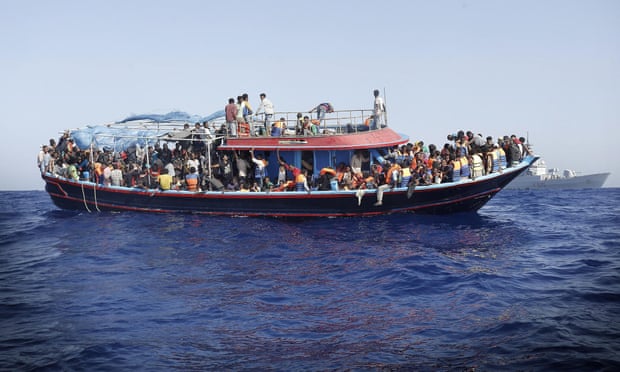 |
| Alexander Wendt |
The first aspect of the corporate identity; that
I’m going to explain is physical security of the State. There is great debate
on how migrants can affect from criminal activity in a country, all the way to
they can potentially threatening its
national security. We can include not only migrant’s spark these kinds fears
but all any kind of transitory movement like tourist. Actually there is great
confusion amongst most people over this distinction between tourist and
migrants they are two totally different things. Back tracking a bit to the
potential treat of migrants we can find that this issue is a real hot topic in
places like United States, Europe and Russia, just to name a few countries that
receive large amounts of immigrants. In the case of Argentina from where I’m
writing from and it’s my field of work, this primary issue isn’t violated,
migrants are not a major security risk for the country at the moment. I must
add that they are not perceived as a threat either, foreigners in general are
not considered dangerous by the majority of Argentineans. The dangerous “other”
is a social construct (it doesn’t limit itself to migrants, the concept can be
applied on any other group of people), it can be real or not, but it’s a very
effective political tool, and migrants make perfect scapegoats this is
especially common to see more and more in the US and in Europe. In any society, simple perception of a threat
(real or not) generates persecutive tension
in the population, undergoing varying degrees of rejection to foreigners; this can
go from mistrust, all the way to the open persecution of any particular group.
On the other hand, Argentina as a country does
not consider immigration as a security issue and law does not criminalize the
immigrants in general, especially the ones that enter legally to the country but over stay, makes them subjects of law with the possibility to settle and
grow in the recipient country, these people have rights and obligations.
Argentina avoids the temptation of calling these people illegal immigrants, or
illegal’s, this term has a strong negative cognition. An illegal person
actually sounds quit dangerous, how come you can call a immigrant this and
serial killer gets off Scott free from this derogatory term, as you can see it
has a strong political significance.
This doesn't mean all
immigrants are saints; there are always a small proportion of them that will
commit crimes or unlawful acts of terrorism, it’s naïve to think
otherwise. But in Argentina’s case today there are no groups of foreigners who
pursue to perpetrate acts against it population at widespread level or threaten its nation security [2] , there may be minor criminal organizations
exploiting migrants and trafficking them, but if un checked it can get
much worse.
The second interest to satisfy is the ontological security, we’ll define it as the form of security that is provided by order, continuity and stability in the lives of the citizen of a country, and this approximately summarizes the concept developed by Anthony Giddens (1979). In the case of the Argentina migrants are not seen as people that alter the social order and do not break the internal social balance in general. For example the in countries of the European Union, over the years there’s a growing influx of migrants that has produced a major backlash against these people from the local population. But one must observe the fact that most of the migrants are coming from countries that are ethnically and/or religiously different, this fact causes rejection from the receiving society, because these migrants do not fit within the framework of European identity or the construction of it; so they are seen as disrupters of the social order. (Checkel and Katzenstein, 2008). .
In other words any group of migrants that does not
assimilate themselves into local population, are visibly different and have very
different customs, they don’t have to vandalize, liter, be drunk on the streets,
pan handle … (just to use a few examples), if the local population does not
except them for whatever reason, they’ll view them as people that alter the
ontological order.
Hi guys if you liked this blog give me hand make a pledge at my Patreon page at this Link so I can keep on writing about the stuff I love and I love to share
The second interest to satisfy is the ontological security, we’ll define it as the form of security that is provided by order, continuity and stability in the lives of the citizen of a country, and this approximately summarizes the concept developed by Anthony Giddens (1979). In the case of the Argentina migrants are not seen as people that alter the social order and do not break the internal social balance in general. For example the in countries of the European Union, over the years there’s a growing influx of migrants that has produced a major backlash against these people from the local population. But one must observe the fact that most of the migrants are coming from countries that are ethnically and/or religiously different, this fact causes rejection from the receiving society, because these migrants do not fit within the framework of European identity or the construction of it; so they are seen as disrupters of the social order. (Checkel and Katzenstein, 2008). .
 |
| Peter Katzenstein |
Please comment it would be great to see other
points of views and I'm very sorry I have dyslexia so my writing can be tad sloppy
and confusing, it sucks but I try my best enjoy.
Hi guys if you liked this blog give me hand make a pledge at my Patreon page at this Link so I can keep on writing about the stuff I love and I love to share
